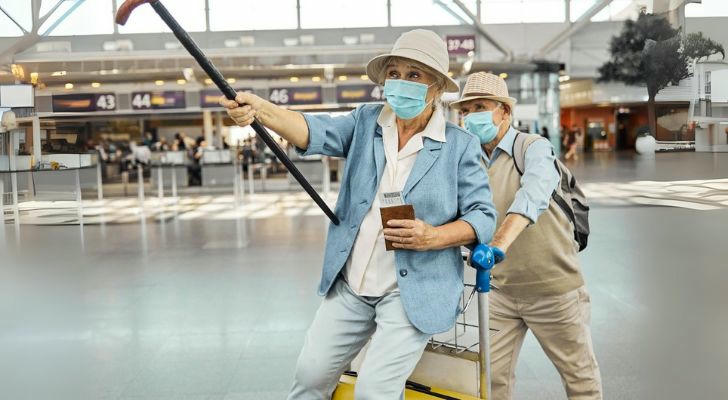For cancer patients, planning a trip involves additional considerations, particularly when it comes to securing travel insurance. Explore options for travel insurance that will protect you from costly medical expenses.

Why Travel Insurance Matters
Cancer treatment—whether chemotherapy, radiotherapy, immunotherapy, or surgery—can leave lasting effects on health. Even when treatment is complete, the risk of medical complications abroad may remain higher. Without adequate cover, unexpected hospital bills overseas can be financially devastating.
Travel insurance provides reassurance by covering:
- Emergency medical treatment abroad
- Hospital stays and repatriation if needed
- Trip cancellation if your health changes before departure
- Support services, such as 24/7 medical assistance lines
For cancer patients, this protection is not a luxury—it is essential.
Challenges Cancer Patients Face
Despite its importance, getting travel insurance after cancer is not always straightforward. Common obstacles include:
- Higher premiums – Insurers may charge more due to perceived risk.
- Limited availability – Some mainstream providers refuse cover for anyone with a recent history of cancer.
- Detailed medical screening – Applicants must answer sensitive questions about diagnosis, treatment dates, and medications.
- Exclusions – Certain policies may exclude cancer-related claims, leaving gaps in protection.
These challenges can make the process feel discouraging, but there are ways forward.
Options Available
Fortunately, cancer patients are not without choices. In the UK, several routes can make travel insurance more accessible:
- Specialist medical travel insurers – These companies focus on pre-existing conditions and are more flexible in offering cancer cover. Well-known providers include:
| Provider | Can Cover Cancer? | Best For | Highlighted Benefits | Cost Level |
|---|---|---|---|---|
| Insurancewith | ✅ Yes, designed for cancer patients | Those recently treated or in remission | Cancer-focused policies, fair pricing | £ (Budget-friendly) |
| AllClear Travel | ✅ Covers all pre-existing conditions | Any age, incl. older patients with multiple conditions | No age limit, wide acceptance | £££ (Higher premiums) |
| Staysure | ✅ Depending on medical screening | Older travellers, those stable or in remission | Annual multi-trip options, good support | ££ (Mid-range) |
| World First | ✅ Flexible cover for cancer | Patients wanting more choice of add-ons | Flexible terms, online tools, responsive claims team | ££ (Mid-range) |
- Policies tailored to cancer patients – Some insurers have developed dedicated products with benefits such as cover for ongoing monitoring or remission.
- Charity partnerships – Cancer support charities sometimes collaborate with insurers to provide guidance or recommend patient-friendly providers.
- Comparison tools – Specialist brokers and online platforms can help identify insurers willing to cover cancer-related conditions.
Typical Waiting Periods
The waiting period refers to the time after treatment when insurers are more likely to consider you eligible for cover. While it varies by provider, general patterns include:
- Immediately after treatment – Cover is usually very limited. Most insurers will not provide full cancer-related protection if you are still undergoing active treatment.
- First 3–6 months – Some specialist insurers may consider you, but policies can be more expensive and may include exclusions.
- After 6–12 months of stability – Many insurers become more flexible once your doctor confirms your condition is stable. This is often the point when a wider range of affordable policies is available.
- Long-term remission or ongoing monitoring – If you have been in remission for a year or more and your health is stable, more insurers are likely to provide comprehensive cover at standard rates.
It is important to note that these timeframes are guidelines only. Every case is assessed individually.
Final Thoughts
For cancer patients, travel insurance is not just a formality—it is a vital safeguard. While challenges such as higher premiums and complex screening exist, specialist providers and tailored policies mean that safe, well-protected travel is possible. With preparation and the right advice, cancer patients can enjoy their journeys with peace of mind, focusing on recovery and creating new memories abroad.

